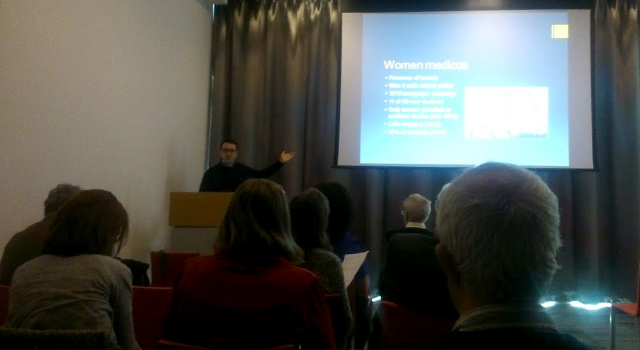Articles

No Comments
By Voices
On 15, Dec 2014 | No Comments | In Community Activity | By Voices
Study Day: First World War and injury, medicine, disability
6 December 2014, Library of Birmingham
This study day was held to consider different aspects of the medical advances and types of injury and disability that occurred as a result of trench warfare during the First World War and also to explore the legacy of the conflict and to offer some comparisons to today.
Speakers from different backgrounds spoke on a wide range of topics. Lt Col Professor Steve Jeffery, a Consultant Burns and Plastic Surgeon at Birmingham’s Queen Elizabeth Hospital and the Royal Centre for Defence Medicine and Professor of Wound Study at Birmingham City University compared surgical wound care from 1914 to the present day while Professor Jonathan Reinarz, Director of the University of Birmingham’s History of Medicine Unit gave a historical perspective on the provision of care in the city just prior to the outbreak of war and described the impact the conflict had on hospitals after the war began. In the second session Ian Fellows spoke about a project that he had been involved with called Blinded by War. The project was organised by Insight Society, a social enterprise that has provided services in Birmingham and the Black Country for blind and visually impaired people since 1998. Blinded by War was one of the first projects to be funded by the Heritage Lottery Fund’s Understanding the First World War programme and was an activity based project designed to improve the participants’ knowledge and research skills and made heavy use of museum collections, most notably that of the Imperial War Museum; Julia Midgley, an artist whose current exhibition ‘War Art and Surgery’ is influenced by the pastel drawings by Henry Tonks of soldiers who had suffered facial injuries and were being treated by the pioneering surgeon Harold Gillies. Julia spoke about the artistic process she employs in her depictions of soldiers injured during combat in Iraq and Afghanistan who are undergoing rehabilitation at Headley Court; Dr Emily Mayhew from Imperial College London ended the morning session with a talk on the creation of specialist stretcher bearers and described their importance in being the first point of contact an injured soldier would have. The last paper in the afternoon was by Professor Nigel Hunt, Associate Professor at the Faculty of Medicine and Health Sciences at the University of Nottingham, who spoke about shellshock in WW1 and beyond.



Submit a Comment